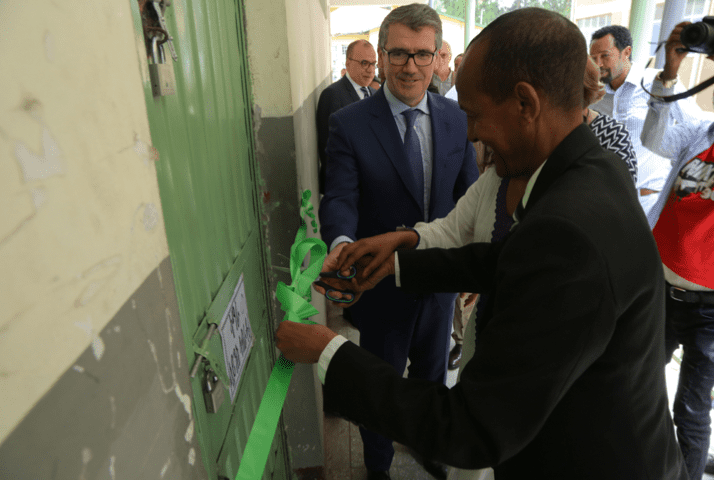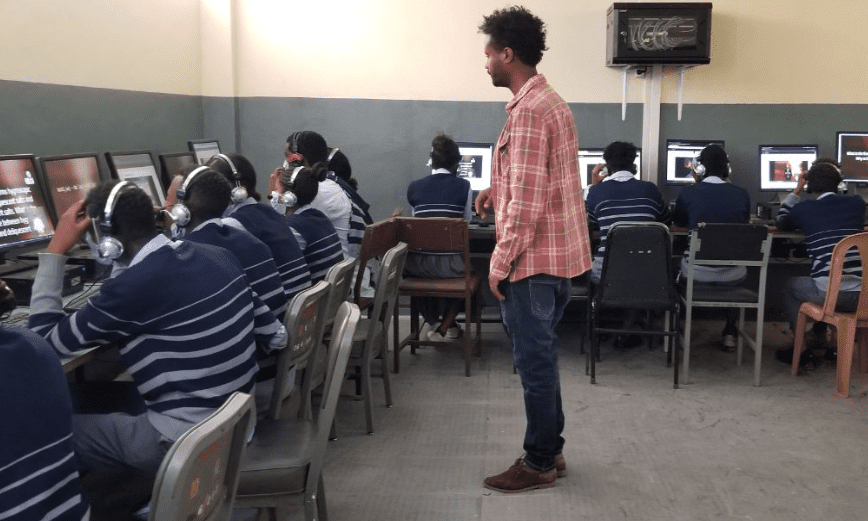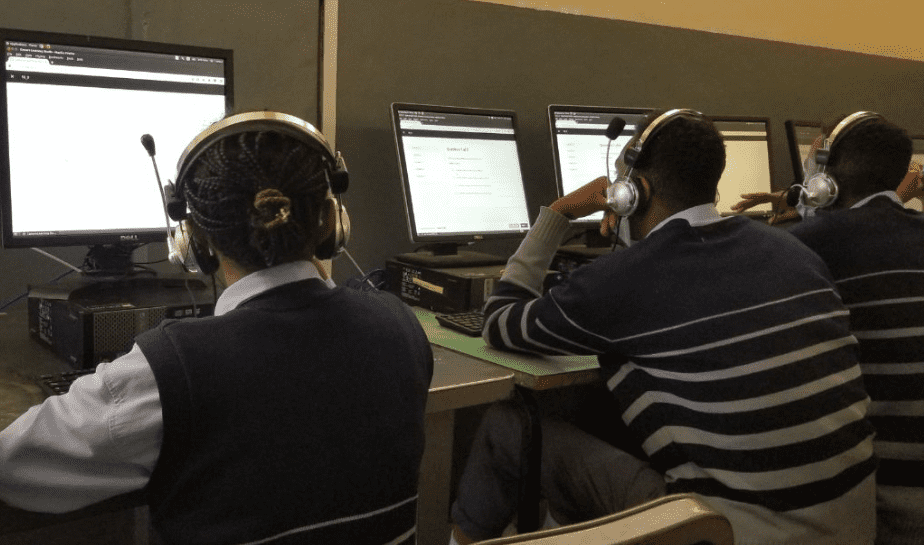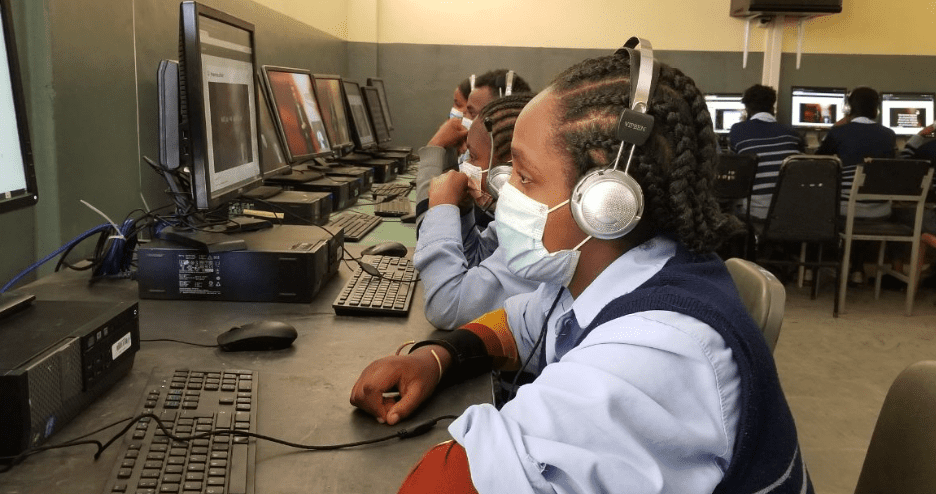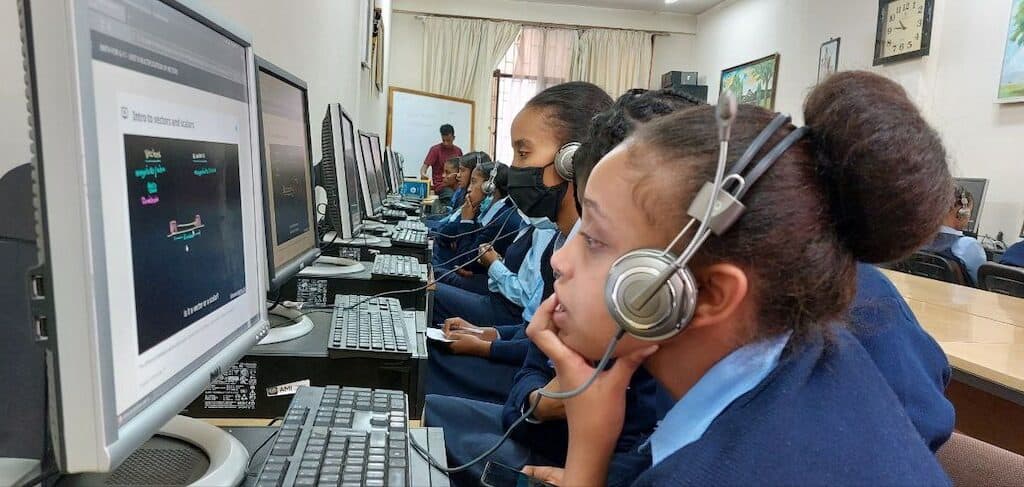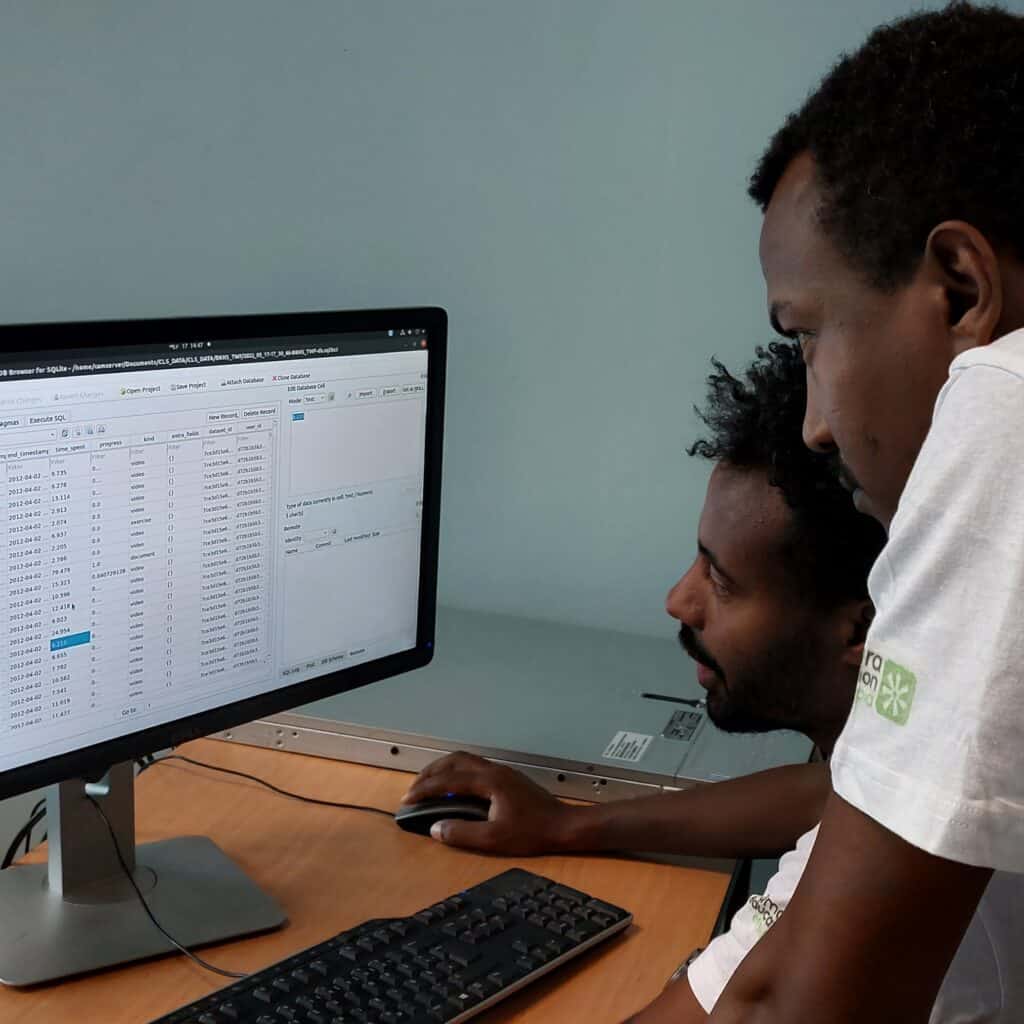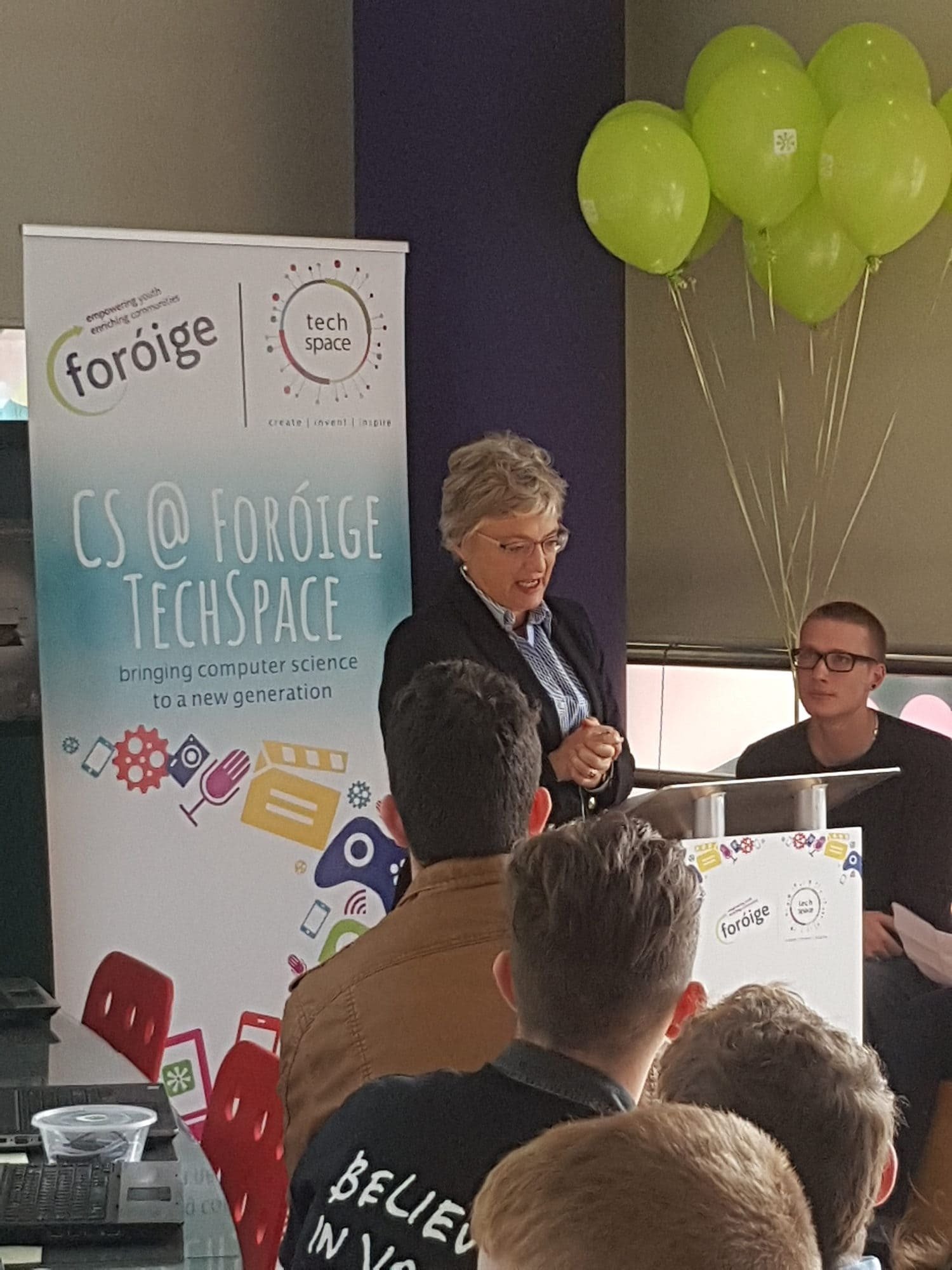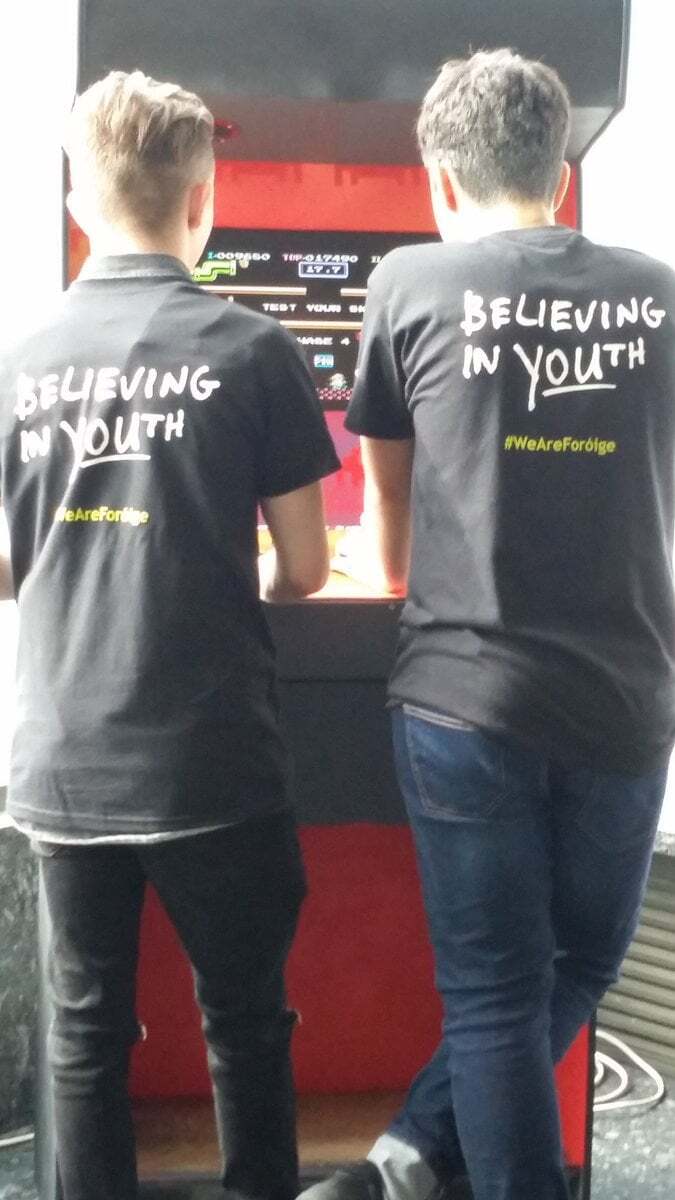As the gap between the rich and poor continues to widen, there’s no shortage of people willing to help, whether through charity or innovation. But who are these people? And how are they making their impact?
While there’s no single right answer to this question, the growing number of tech-for-good companies that help bring the less fortunate up to speed with the rest of the world offers some insight into what they believe will make the biggest difference.
Then again, as technology continues to advance and change the way we live, there’s always been one question on everyone’s mind – how can this help those who aren’t as fortunate?
Nowhere is that more true than in Africa, where the digital divide still remains wide and only continues to grow as technology advances further and further. In Africa alone, 22% of the population is without access to the internet, and even among those with access, many are limited to certain parts of the continent because of slow download speeds or prohibitively high prices charged by phone companies.
Technology has been doing wonders in the developed world, and now it’s time to take it to the next level and introduce technology into the lives of those who really need it. Not just those who simply want it but those who need it so they can improve their lives and societies around them.
A Little Bit about Technology in Africa
In Africa, there is a growing divide between those who have access to technology and those who do not. This has been dubbed the digital divide.
While there are many factors that contribute to this divide, one of the most important is access to technology. Those who have access to technology have a significant advantage over those who do not. This is especially true when it comes to education.
For example, in the continent, many schools are now using educational software to help students learn. This software is often not available to students who do not have access to technology. As a result, these students are at a disadvantage when it comes to their education.
However, there are organisations working to close the digital divide in Africa. These organisations provide access to technology and the internet to those who would otherwise not have it.
According to the United Nations Development Programme (UNDP), around 563 million people in Africa had access to the internet in 2013, although this number has been growing steadily in recent years. And there is hope that in the coming years, the majority of African citizens will have access to internet services at home.
How Technology Is Helping the Less Fortunate in Continents Like Africa
There are several issues preventing people from having access to the internet and technology in general, such as lack of infrastructure, expensive hardware and software, as well as cultural and educational factors. But it is good to know that technology is slowly shaping countries and helping them improve in ways we never thought were possible.
1. Better Education
In many rural African schools, students often share one computer between several classes. This can make it difficult for students to get the individualised attention they need to succeed.
However, new initiatives are providing more access to computers and the internet in rural schools. For example, there is a cause that aims to provide laptops to children in developing countries. These laptops are rugged and designed to be used in rough conditions. They also have educational software installed on them to help students learn even when they don’t have a teacher present. By giving students more access to technology, we can help close the digital divide and give everyone a fair chance at success.
Camara, in particular, is a non-profit social enterprise that aims to focus on using technology to help the fortunate. They recycle and reuse computers and other IT equipment and use them to set up computer labs across the African continent. As of this writing, they have put more than 150,000 computers into 10,500 schools, impacting around 3,500,000 African children.
2. Improved Infant Mortality
In many parts of Africa, infant mortality rates are high. But with the help of technology, that’s starting to change. Mobile health clinics are bringing healthcare to remote areas, while apps and educational software are helping to improve literacy rates.
In addition, the internet provides access to infant care information that was previously out of reach. It is obvious that tech is helping to save lives and improve living conditions for millions of people across Africa.
Portable ultrasound devices are also made available in the continent, allowing doctors to see the inside of a woman’s womb and assess the growth of babies. Such devices are very affordable, and they can be easily connected to a computer or a smartphone.
3. Healthcare
In many developing countries, healthcare is often inadequate. But with the help of technology, that’s starting to change.
For example, mobile health clinics are bringing medical care to remote areas, while telemedicine is making it possible for doctors to consult with each other and share information more easily.
In addition, new diagnostic tools and treatments are being developed all the time. And thanks to the internet, people in far-flung corners of the world can now access this information.
There are also programs such as NetAid, which uses digital technologies to deliver food aid. And there are countless other ways in which tech is improving lives – from cell phones providing a way for families separated by health crisis or disaster to stay connected to voice assistants helping children learn languages.
4. Job Opportunities in Emerging Markets
Technology has enabled us to create jobs that couldn’t exist without it, such as virtual assistants. It has also changed the way people live their lives and interact with each other.
One way that technology is helping the less fortunate is by creating job opportunities. For example, in Africa, many people are employed in the tech sector. This provides much-needed jobs and helps to grow the economy. Additionally, tech companies are often able to provide training and support to employees, which can help to close the skills gap further.
Facebook even makes it possible for people to generate job opportunities for people and help them stay connected with friends and colleagues. LinkedIn, on the other hand, helps professionals find jobs by networking with potential employers, and Skype enables video calls over the internet, perfect for meetings and interviews.
Educational software is also giving people in developing countries a chance to learn new skills and improve their prospects for employment. By bridging the digital divide, technology is helping to level the playing field and provide opportunities for people who otherwise would not have them.
5. Mobile Phones
In many parts of Africa, mobile phones are becoming increasingly prevalent. This technology is helping to connect people who previously had no way to communicate with each other.
In addition, mobile phones are being used to access the internet and educational software. This is bridging the digital divide and giving people in Africa a chance to improve their lives.
For example, women have been able to start small businesses selling products they create themselves through social media or by creating websites where they sell handmade crafts. Mobile phone use has also increased school attendance as children can now attend classes remotely via video streaming.
And as text messages become cheaper than phone calls in some places, social networks are enabling people from different villages to share information about farming techniques and weather forecasts.
Although there are still disparities between rich and poor, mobile phone ownership gives everyone access to new technologies, providing those living without electricity with power via solar panels or charging stations.
6. Bridging the Gap with Mobile Money
Mobiles aren’t just improving life for Africans but also for Europeans, Americans, and Asians. Because of mobile phones, mobile payments are now made possible, and they are proving to be more popular than cash transactions in countries such as Kenya and Zimbabwe due to high unemployment rates.
With this system set up on the mobile phones that most Africans have access to, it’s not only easy but also safe to do business using a credit card number stored on your phone rather than carrying around large amounts of cash that can be stolen or lost easily.
In Kenya, mobile money services like M-Pesa provide bank accounts and mobile banking in remote areas without access to traditional banks.
Mobile payments will continue to grow in popularity as smartphones continue increasing worldwide usage rates while expanding into developing nations; a trend that should only help everyone involved.
7. Reaching Remote Areas
The internet and mobile technology are increasingly becoming a lifeline for many people in rural and remote areas of Africa. With access to the internet, people are able to connect with family and friends, get news and information, find jobs, and do business.
People can even educate themselves and perform basic troubleshooting in case they find that a computer turns on by itself. They need not go to the city to find a certified technician to do the fixing.
Mobile technology is also helping to close the digital divide by providing access to educational software, health information, and other services that can improve quality of life.
8. Mapping Libraries
In many developing countries, access to technology and the internet is limited. But organisations are working to change that by mapping libraries. With just a smartphone, locals can map their library’s books, making it easier for people to find and borrow books. This not only helps people gain access to information but also helps libraries keep track of their inventory.
In some African countries, mapping libraries are also being established to help bridge the digital divide. These libraries provide access to IT, the internet, and educational software for those who wouldn’t otherwise have it. They also offer training on how to use these technologies. So far, these mapping libraries have had a positive impact on the lives of many people in Africa.
9. Creating Businesses
Starting a business can be incredibly difficult. The lack of access to resources, infrastructure, and funding can make it nearly impossible to get a business off the ground.
However, technology is helping to level the playing field and give entrepreneurs in developing countries a fighting chance. Cloud computing, shared platforms, and open-source software programs are changing the game. Developing nations now have access to tools that they would not have been able to afford or develop on their own.
Platforms like TARGIT; an open-source platform used by nonprofits to help individuals manage data from disparate sources (such as company financial reports), so they can better understand their sector or industry; allow people with few technical skills who may not have had exposure to technology before to contribute meaningful work without extensive training.
Technology can empower those who are less fortunate by creating economic opportunities or providing resources for better education and health care.
10. Domestic Work
In many developing countries, women make up a large percentage of the domestic workforce. Aside from caring for children and cooking meals, they often have to walk long distances to collect water and firewood.
However, technology is beginning to change this. In Rwanda, for instance, many women now use solar-powered lamps to light their homes and cookstoves, which has not only saved them time but also reduced their exposure to harmful smoke inhalation. A woman can now spend more time with her family or do an extra shift at work because she doesn’t need to worry about wasting fuel.
11. Employee Productivity
It’s no secret that technology can help boost employee productivity. By automating certain tasks, providing easier access to information, and facilitating communication, tech can help employees work more efficiently and effectively. In turn, this can help small businesses increase their bottom line.
And when businesses do well, they can create more jobs and opportunities for people in their communities. For example, Nigeria has a large population of youths who are not currently working or being educated. Businesses that invest in developing apps and programs can have a huge impact on these communities by creating job opportunities for many people.
12. Agriculture and Large-Scale Farming
Farming in Africa has been traditionally very manual and time-consuming, making it difficult to scale up and be profitable. However, with the advent of new technologies, large-scale farming is becoming more feasible.
For example, GPS-guided equipment can help farmers sow seeds more accurately, and drones can be used for crop mapping and monitoring. Apps and software programs are also being developed to help farmers with things like irrigation and pest control.
Moreover, aerial images can now be generated by drones and satellites, and soil sensors can already be installed to manage and control crop growth in real-time. Zenvus, a precision farming startup tech, aims to measure and analyse soil data like nutrients and temperatures to help farmers determine the right amount of fertiliser and water required in farms.
These advances in technology are helping to increase yields and incomes, making a big difference for smallholder farmers across Africa.
Wrapping Up
The digital divide between people who have access to technology and those who don’t is becoming smaller every day as technology becomes more available to the masses. While this means we can help millions of people become more educated and financially sound, it also means that we need to make sure that technology is doing good things and not just making us lazier or more distracted. By thinking about how we can improve our world through tech, we can help those in need while also improving our own quality of life.
This was a guest article written by Jessica Bullet from Software Tested

